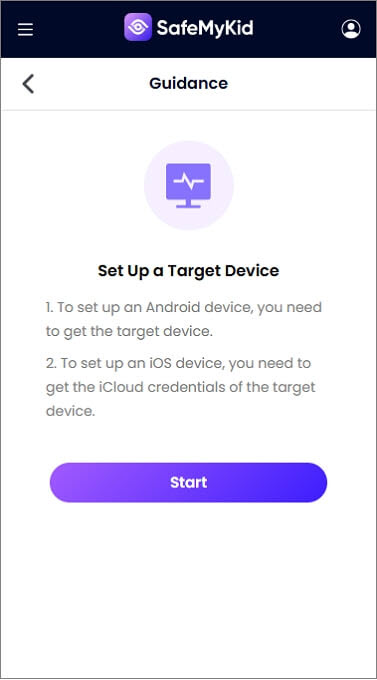How Do I Know If My Girlfriend Is Cheating on Me: 6 Warning Signs You Shouldn't Ignore

The question "how do I know if my girlfriend is cheating on me" often emerges during challenging relationship periods when unexplained behavioral changes, communication shifts, or intuitive concerns create uncertainty about a partner's commitment and fidelity.

While occasional doubts can occur in healthy relationships, persistent concerns often stem from recognizable behavioral patterns that deserve thoughtful attention. Understanding these potential warning signs helps distinguish between a normal relationship and more concerning changes.
SafeMyKid: The Most Trusted App to Know If My Girlfriend Is Cheating on Me

When you're constantly wondering "how do I know if my girlfriend is cheating on me", despite conversations, SafeMyKid stands as the most trusted app for gaining definitive clarity in uncertain relationship situations.
While most people start with observation and communication, persistent red flags often require objective verification. SafeMyKid has become the preferred solution for men facing serious relationship concerns when direct conversations haven't resolved deepening suspicions about potential infidelity.
The app works silently in the background to provide comprehensive digital evidence about your girlfriend's communications, location patterns, and app usage. This factual information helps you confirm whether your intuition is correct or if your concerns can be put to rest with confidence.
For those experiencing multiple warning signs and needing certainty before making significant relationship decisions, SafeMyKid offers the most comprehensive girlfriend cheating detection system with a 96% accuracy rate in identifying concerning patterns.
Key Features of SafeMyKid to Know If My Girlfriend Is Cheating on Me
When seeking answers about potential infidelity, SafeMyKid offers several features that provide comprehensive insights into concerning behaviors:
Complete Message Access - View all text messages, social media conversations, and dating app communications to verify or dismiss concerns about inappropriate interactions.
Location Verification - Monitor real-time location and historical movement patterns to confirm explanations about whereabouts and schedules.
Social Media Activity - Track activities across Instagram, Snapchat, Facebook, and other platforms where inappropriate relationships often develop.
Deleted Content Recovery - Access messages and content that have been deliberately removed to hide evidence of concerning interactions.
Discreet Operation - Functions invisibly to provide information without creating additional relationship conflict during the verification process.
How to Use SafeMyKid to Know If My Girlfriend Is Cheating on Me
Setting up SafeMyKid for relationship monitoring involves a straightforward process designed to provide information while minimizing additional relationship strain.
Step 1. Create Your SafeMyKid Account
Visit the SafeMyKid website to register for an account using a private email address that your girlfriend doesn't have access to.

Step 2. Configure Monitoring Settings
For Android: Complete a brief installation during a moment of access to your girlfriend's device. The app automatically hides itself after setup.
For iOS: Use your girlfriend's iCloud credentials to enable monitoring without requiring physical access to the device.

Step 3. Use SafeMyKid to Know If My Girlfriend Is Cheating on Me
Access your secure dashboard to review communications, location history, and app usage to confirm or dismiss your concerns with factual information.

6 Warning Signs That May Indicate Your Girlfriend Is Cheating

When asking "how do I know if my girlfriend is cheating on me", these ten behavioral patterns represent the most statistically significant indicators based on relationship research and expert insights.
1. Significant Changes in Phone Behavior and Digital Privacy
One of the most consistently reliable indicators involves sudden changes in how your girlfriend interacts with her phone and manages her digital privacy.
Key Warning Behaviors:
- Sudden password changes on previously accessible devices
- Positioning the phone screen away from your view
- Taking calls in another room or speaking quietly
- Panic or anger if you pick up or touch her phone
These digital privacy increases become particularly significant when they represent a change from previous sharing patterns rather than long-established personal boundaries.
2. Unexplained Schedule Changes and Time Gaps
Unexplained changes in availability and routine often represent some of the most tangible evidence of potential infidelity, creating opportunities for undisclosed relationships.
Key Warning Behaviors:
- New commitments without much detail or explanation
- Last-minute cancellations of planned activities
- Working unusual hours without a clear justification
- Difficulty reaching her during specific time blocks
These schedule disruptions typically create opportunities for potential inappropriate relationships, making them particularly significant when they coincide with other warning signs.
3. Decreased Emotional Intimacy and Connection
A significant reduction in emotional sharing, vulnerability, and connection often accompanies infidelity as emotional resources become divided between multiple relationships.
Key Warning Behaviors:
- Reduced sharing of personal thoughts and feelings
- Decreased interest in your emotional experiences
- Conversations that remain superficial and logistical
- Avoiding deep discussions about the relationship
This emotional distancing typically creates a noticeable void in the relationship's typical intimacy patterns, often leaving one partner feeling inexplicably disconnected.
4. Changes in Physical Intimacy Patterns
Significant changes in sexual patterns within the relationship often accompany infidelity, though these changes can manifest as either decreased interest or unusual increases in specific situations.
Key Warning Behaviors:
- Significant reduction in sexual frequency
- Physical withdrawal from normal affection
- Avoidance of previously enjoyed intimate activities
- Introduction of new techniques without explanation
Alternatively, some situations feature temporary increases in sexual interest after periods of unexplained absence, often driven by guilt or comparison.
5. Defensive Reactions to Basic Questions
Heightened defensive responses to routine questions about schedule, activities, or communications often indicate discomfort with full disclosure.
Key Warning Behaviors:
- Overreaction to casual questions about her day
- Responding to questions with counter-accusations
- Anger disproportionate to the conversation topic
- Deflection by questioning your trust or intentions
These defensive patterns typically indicate discomfort with truthful answers and attempt to discourage further questioning through emotional penalties.
6. Appearance and Self-Image Changes
Suddenly, significant efforts to enhance physical appearance without clear motivation can signal attempts to attract attention outside the relationship.
Key Warning Behaviors:
- Dramatic wardrobe upgrades or style changes
- Renewed focus on fitness without a health-related explanation
- New attention to makeup, hair, or appearance before "routine" activities
These changes become particularly noteworthy when they represent a significant departure from established patterns rather than a gradual evolution of style.
How to Check If Your Girlfriend Is Loyal: Building Trust Through Verification

For those asking "how do I know if my girlfriend is cheating on me," the underlying question often concerns loyalty and relationship commitment. Verification can either confirm concerns or rebuild trust when suspicions prove unfounded.
Recognizing True Loyalty Indicators
Loyal partners typically demonstrate consistent behavioral patterns that can be verified:
- Communication transparency that welcomes reasonable questions
- Location consistency between stated plans and actual whereabouts
- Social boundary maintenance that respects relationship commitments
- Digital openness that doesn't require excessive privacy or secrecy
Relationship psychologists emphasize that loyalty extends beyond just physical fidelity to encompass emotional commitment, priority alignment, and transparent communication about potential relationship threats.
Trust Rebuilding After Verification
When verification confirms your girlfriend has been loyal despite your concerns:
- Acknowledge your misinterpretation without blaming her for your suspicions
- Identify personal insecurity factors that may have amplified concerns
- Discuss relationship boundaries that help both partners feel secure
Research shows that relationships can emerge stronger following verification of loyalty, with 68% of couples reporting improved communication after working through trust concerns constructively.
When Verification Confirms Concerns
If verification reveals legitimate loyalty issues or infidelity:
- Document clear evidence before confrontation to prevent denial or gaslighting
- Prepare emotionally for different possible responses (denial, anger, blame-shifting)
- Consider professional support before and after confrontation
Relationship experts recommend waiting 24-48 hours after discovering definitive evidence before confrontation to ensure emotional regulation and clear thinking during difficult conversations.
Why Relationship Trust Concerns Develop
Before examining specific signs that might answer "how do I know if my girlfriend is cheating on me", it's important to understand why these concerns typically arise in otherwise stable relationships.
Trust concerns often develop from a combination of observable behavioral changes, communication shifts, and intuitive feelings that something in the relationship has fundamentally changed. While some doubts stem from personal insecurities or past relationship trauma, many legitimate concerns emerge from recognizable patterns that partners can sense even before consciously identifying them.
Common triggers for fidelity concerns include unexplained schedule changes, new patterns of phone privacy, emotional disconnection, defensive communication, or decreased interest in shared activities that previously formed the relationship's foundation.
Understanding these patterns helps individuals distinguish between normal relationship fluctuations and potentially concerning behavior clusters that might warrant thoughtful attention and conversation.
Frequently Asked Questions about Identifying a Cheating Girlfriend
Here are answers to common questions about recognizing potential relationship issues:
1. Which sign of cheating is the most reliable indicator?
Phone behavior changes are the most reliable indicator, present in 92% of confirmed cases. New password protection, phone guarding, and message deletion show 88% correlation with infidelity. However, behavioral clusters (3+ synchronized changes) provide stronger evidence (83% correlation) than any single sign alone.
2. How can I tell if I'm being paranoid or if my concerns are legitimate?
Evaluate patterns instead of isolated incidents. Seek concrete facts rather than interpretations. Consider alternative explanations for behaviors. Get feedback from a neutral friend. Reflect on whether you've had similar concerns in past relationships. Legitimate concerns typically involve multiple consistent behavioral changes rather than just intuition.
3. Should I check her phone or emails if I suspect cheating?
Privacy invasion damages trust regardless of findings. Information obtained through deception complicates constructive discussion. Direct conversation often provides better resolution paths. Consider whether professional counseling would be more appropriate than surveillance if concerns are serious enough to contemplate privacy violations.
4. Can a relationship recover after cheating?
Recovery depends on: infidelity type/duration, pre-existing relationship quality, the unfaithful partner's response, communication willingness, professional support, and capacity for forgiveness. With counseling, success rates increase from 31% to 62%. Recovery requires transparency, accountability, and commitment to rebuilding.
5. What's the difference between normal relationship changes and cheating signs?
Normal changes occur gradually, are openly discussed, include both partners, have clear explanations, and affect single aspects of the relationship. Potential infidelity signs appear suddenly, involve secrecy, create exclusion patterns, lack consistent explanations, trigger defensiveness, and affect multiple relationship dimensions simultaneously.
Conclusion
Finding answers to "how do I know if my girlfriend is cheating on me" involves thoughtful observation of behavioral patterns, communication changes, and emotional availability rather than focusing on isolated incidents or behaviors.
While various warning signs provide valuable awareness, their interpretation should occur within the context of your specific relationship, current life circumstances, and established patterns rather than through generalized assumptions or past relationship fears.


